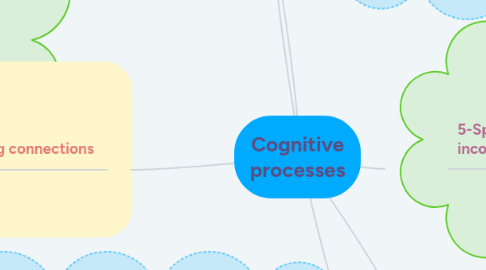
1. 1-Rehearsing
1.1. -observation -instruction -rehearsal
1.1.1. practice is important for skills to became automatice , releasing mental space to learn new thing.
1.1.1.1. Vygotsky pointed out that learning is a social process in which imitation and instruction play a major role.
1.1.1.2. Fuson found that child learnt to count from watching TV.
1.1.1.3. Pisget stressed that verbal instruction alone would be ineffective and emphasised readiness for understanding.
2. 2-Making connections
2.1. -depends on generalising and indeutifying -encourage exploration of mathematical by asking. -symbol , a variety of sound images meaning.
3. 3-Representing and symbolising
3.1. 1- Recognizing numerals and engrossed by trying to record scores at skittles. 2- Representing things is an important learning process because in order to do so children need to identify key features. 3- Language played an important role in the process of abstraction.
3.1.1. -Visualizing is a key aspect of representation which develops before language. - Piaget called the mental image internal imitation. -Hughes found that young children used visualizing to add and subtract.small numbers of objects.

